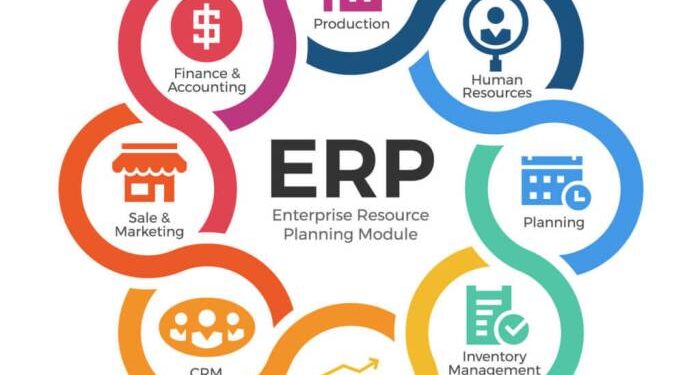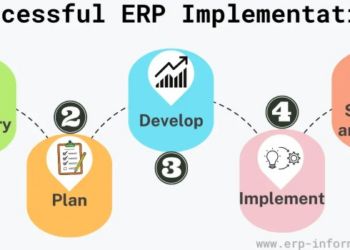Embark on a journey to explore the world of ERP software packages and how they revolutionize modern businesses. From key features to implementation processes, this guide covers it all.
Overview of ERP software packages
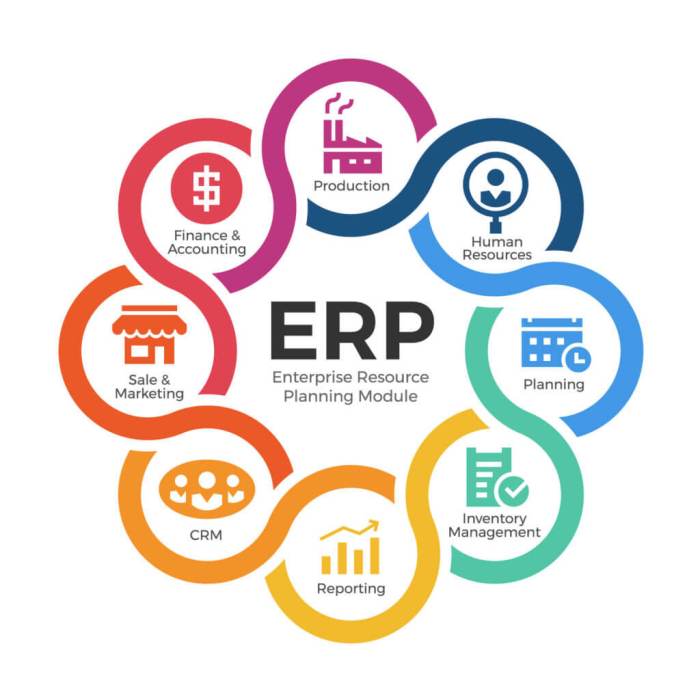
ERP (Enterprise Resource Planning) software is a comprehensive suite of applications that help businesses manage and integrate important functions across various departments. In modern businesses, ERP software plays a crucial role in streamlining processes, increasing efficiency, and improving overall productivity.
Key Features and Benefits of ERP Software
ERP software packages offer a wide range of features and benefits, including:
- Centralized Database: ERP software provides a centralized database that allows different departments to access and share information in real-time, leading to better decision-making.
- Automation of Processes: With ERP software, manual tasks are automated, reducing errors and saving time for employees.
- Improved Reporting and Analytics: ERP software generates detailed reports and analytics, providing insights that help businesses make informed decisions.
- Enhanced Communication: ERP software facilitates communication among departments, improving collaboration and coordination.
- Scalability: ERP software is scalable, allowing businesses to easily adapt and grow without having to invest in new systems.
Types of ERP Software
There are different types of ERP software available in the market to cater to the specific needs of various industries, including:
- On-Premises ERP: Traditional ERP software installed on-site, requiring a dedicated IT infrastructure and maintenance.
- Cloud-Based ERP: ERP software hosted on the cloud, offering flexibility, scalability, and cost-effectiveness.
- Open-Source ERP: ERP software with source code that can be modified and customized according to the business requirements.
- Industry-Specific ERP: ERP software tailored to meet the unique needs of specific industries, such as manufacturing, healthcare, or retail.
Selection criteria for ERP software packages
When selecting an ERP software package, there are several essential factors to consider to ensure that it meets the specific needs of your business. These factors include scalability, customization, and integration capabilities.
Scalability
Scalability is crucial when choosing an ERP software package as it determines how well the system can grow with your business. Look for software that can easily accommodate an increase in users, transactions, and data volume without significant disruptions or the need for a complete overhaul.
Customization
Customization capabilities are important to tailor the ERP system to fit your unique business processes and requirements. Ensure that the software allows for easy customization without the need for extensive coding or external support, enabling you to adapt the system to your specific needs.
Integration Capabilities
Integration capabilities are essential for seamless communication between the ERP software and other systems or applications used within your organization. Choose software that offers robust integration features to streamline data flow and enhance overall efficiency.
Examples of Industries Benefiting from ERP Software Packages
- Manufacturing: Manufacturing companies benefit from ERP software packages that offer advanced production planning, inventory management, and supply chain optimization capabilities.
- Retail: Retail businesses find value in ERP systems that provide comprehensive sales, inventory, and customer relationship management functionalities to improve customer engagement and streamline operations.
- Healthcare: Healthcare organizations benefit from ERP software packages that offer robust patient data management, billing, and compliance features to enhance patient care and optimize revenue cycles.
Implementation process of ERP software packages
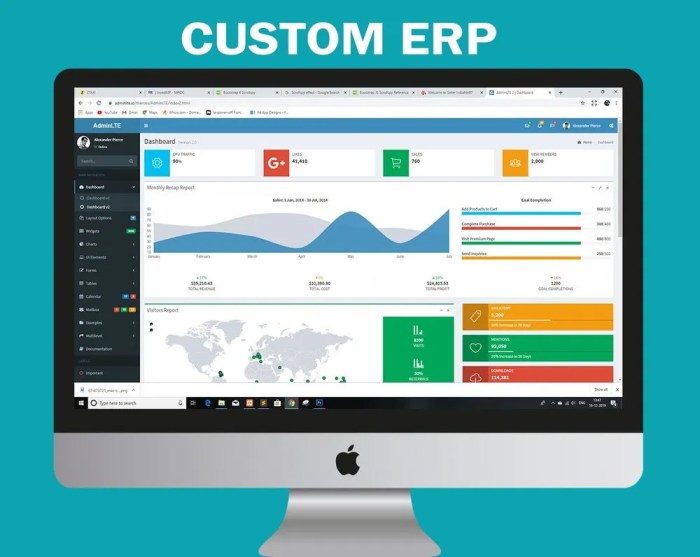
Implementing an ERP software package in a business involves several key steps to ensure a smooth transition and successful integration.
Steps involved in implementing an ERP software package:
- Planning and Preparation: Define goals, establish a project team, assess current processes, and set a timeline for implementation.
- System Selection: Choose the right ERP software that aligns with the organization's needs and requirements.
- Data Migration: Transfer existing data to the new ERP system, ensuring accuracy and consistency.
- Configuration: Customize the ERP software to fit the specific workflows and business processes of the organization.
- Training and Testing: Provide thorough training to employees on how to use the new system and conduct testing to identify any issues.
- Go-Live: Transition to the new ERP system, monitor its performance, and address any immediate concerns.
- Post-Implementation Support: Provide ongoing support, maintenance, and updates to ensure the ERP system continues to meet the organization's needs.
Common challenges faced during ERP software implementation and how to overcome them:
- Resistance to Change: Overcome resistance by involving employees in the process, providing training and support, and demonstrating the benefits of the new system.
- Data Integration Issues: Address data integration challenges by ensuring data accuracy, cleansing data before migration, and establishing clear data mapping processes.
- Scope Creep: Manage scope creep by setting clear project goals, establishing communication channels, and regularly reviewing project progress to stay on track.
Best practices for successful ERP software package implementation:
- Strong Leadership: Appoint a dedicated project manager and executive sponsor to oversee the implementation process and ensure alignment with organizational goals.
- Effective Communication: Maintain open and transparent communication with stakeholders at all levels to address concerns, provide updates, and gather feedback.
- User Involvement: Involve end-users in the implementation process from the beginning to ensure their needs are met and to increase user adoption.
- Regular Training and Support: Provide ongoing training, resources, and support to help employees adapt to the new system and maximize its benefits.
Customization and integration of ERP software packages
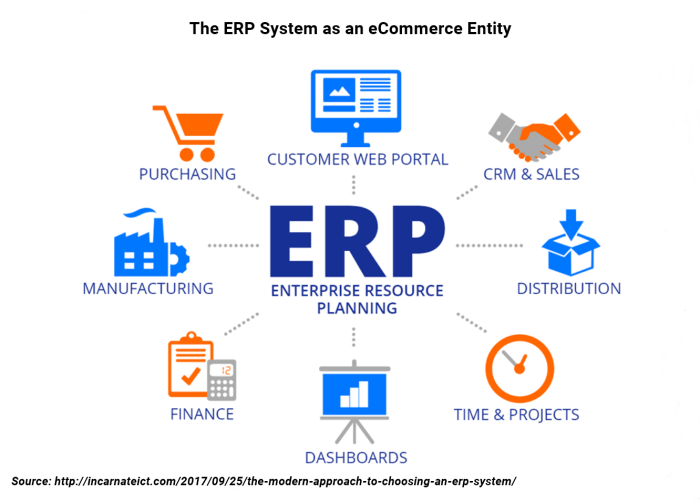
Customizing and integrating ERP software packages are crucial aspects to consider in order to meet specific business needs and ensure seamless operation.
Importance of Customization
Customizing ERP software packages allows businesses to tailor the system to their unique requirements, processes, and workflows. This customization ensures that the ERP solution aligns perfectly with the organization's goals and operations.
Integration with Other Systems
ERP software can be integrated with other systems such as CRM, accounting software, inventory management systems, and more to create a unified ecosystem. This integration enables data to flow seamlessly between different systems, eliminating silos and improving overall efficiency.
Role of APIs
Application Programming Interfaces (APIs) play a crucial role in connecting ERP software packages with third-party applications. APIs allow different software systems to communicate and share data in real-time, enabling a high level of interoperability and automation.
Concluding Remarks
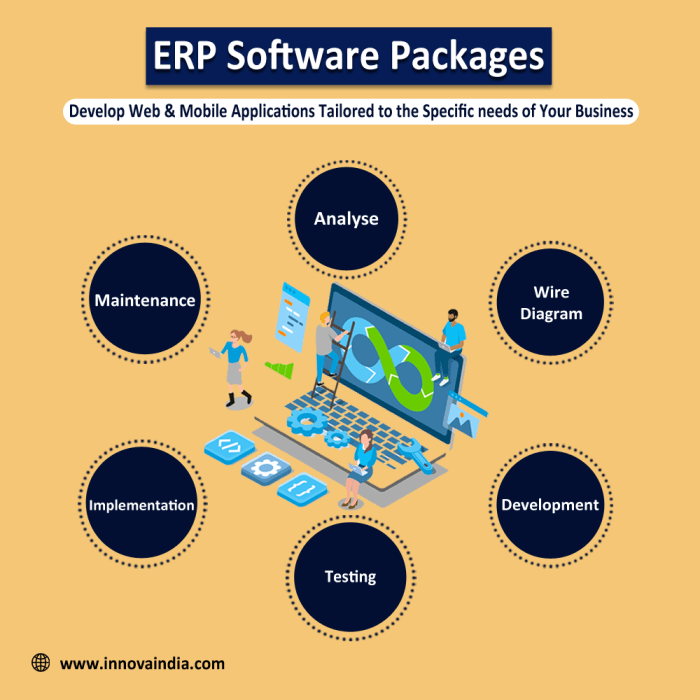
In conclusion, ERP software packages offer a multitude of benefits for businesses looking to streamline their operations and increase efficiency. With the right selection and implementation, companies can experience significant growth and success.
Questions and Answers
What is ERP software and why is it important?
ERP software integrates various business functions into a single system, streamlining processes and improving overall efficiency.
How do you choose the right ERP software package?
Consider factors like scalability, customization options, and integration capabilities to ensure the software aligns with your business needs.
What are common challenges during ERP software implementation?
Common challenges include data migration issues, resistance from employees, and lack of proper training. Overcoming them requires proper planning and communication.
Why is customization important in ERP software?
Customization allows businesses to adapt the software to their unique requirements, ensuring optimal performance and alignment with specific processes.
How can ERP software be integrated with other systems?
ERP software can be integrated using APIs to connect with third-party applications, enabling seamless data flow and operation.

